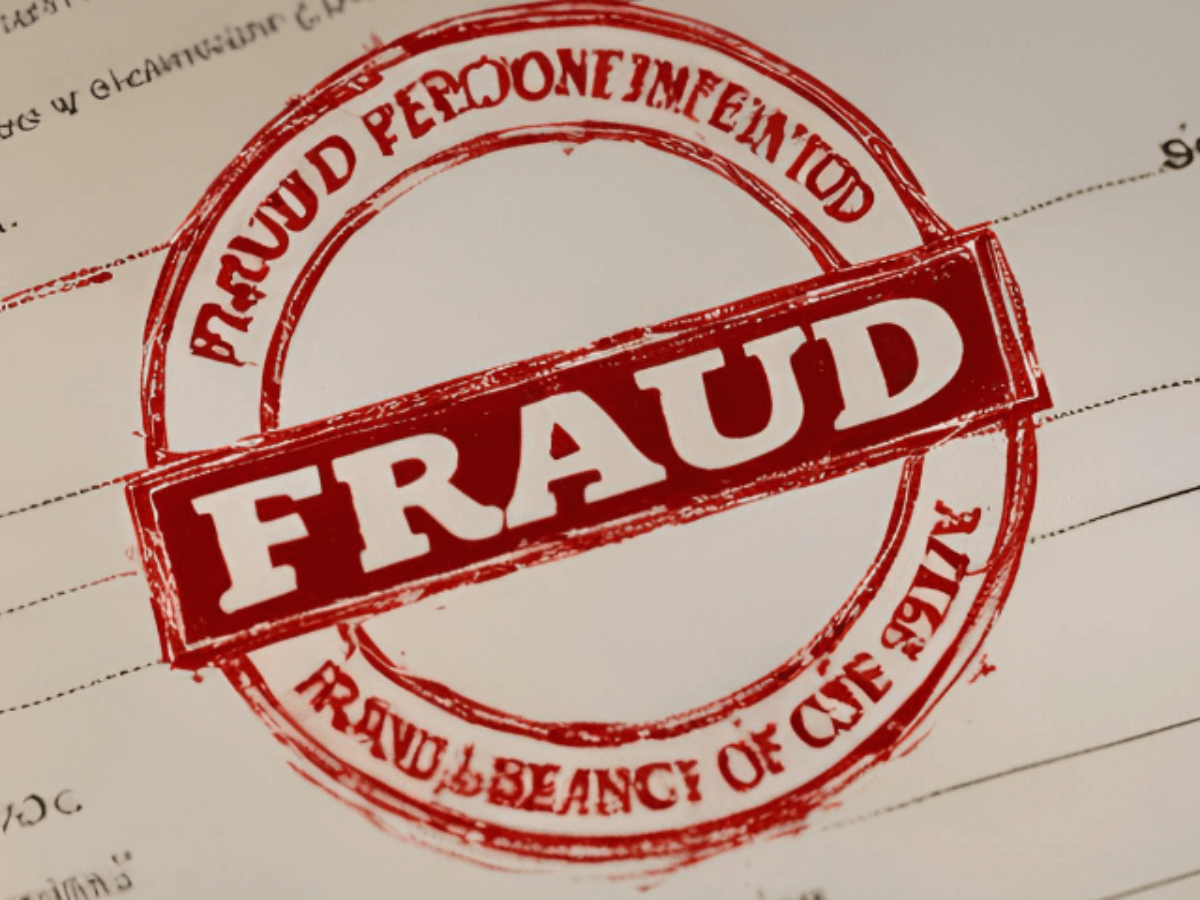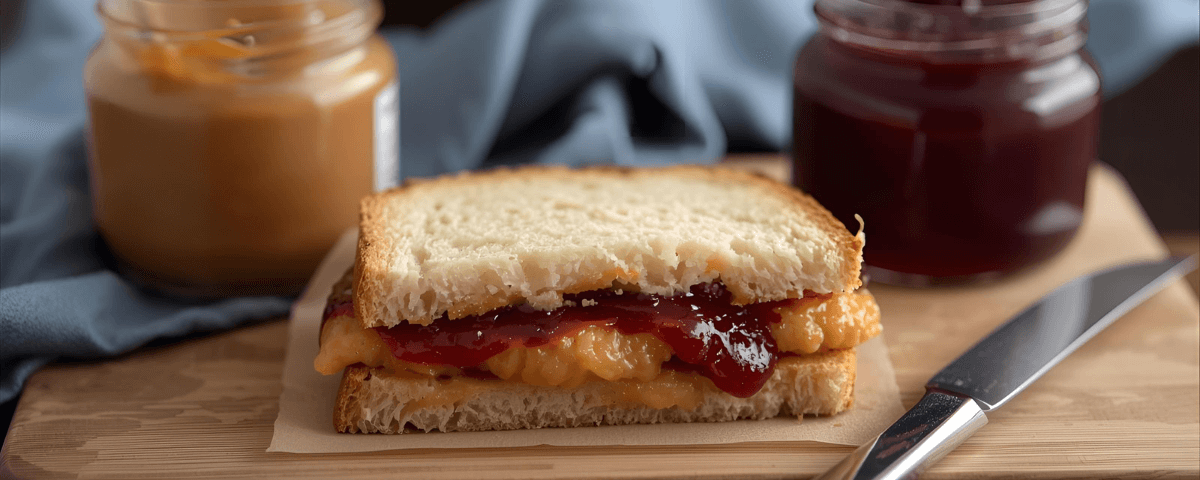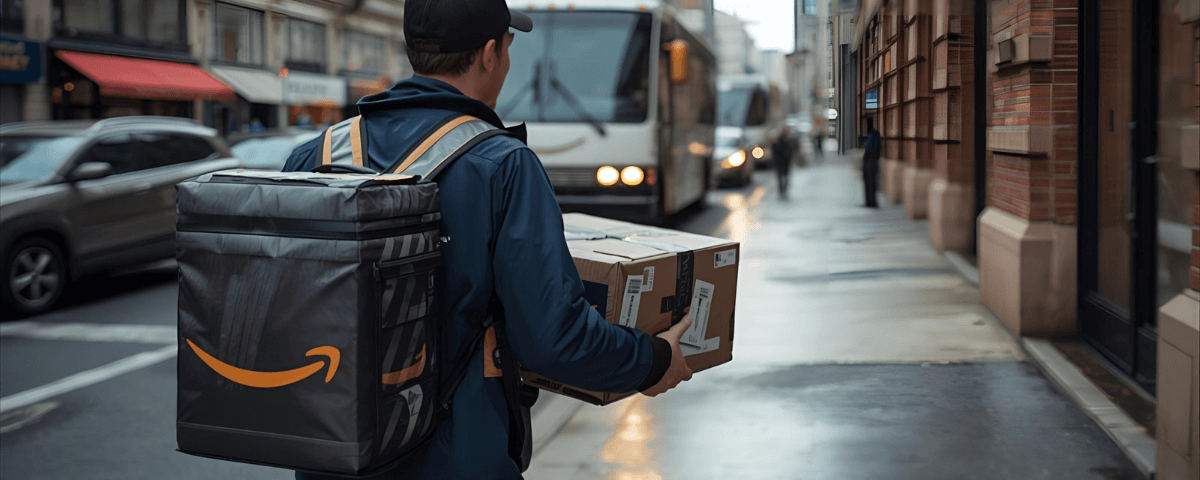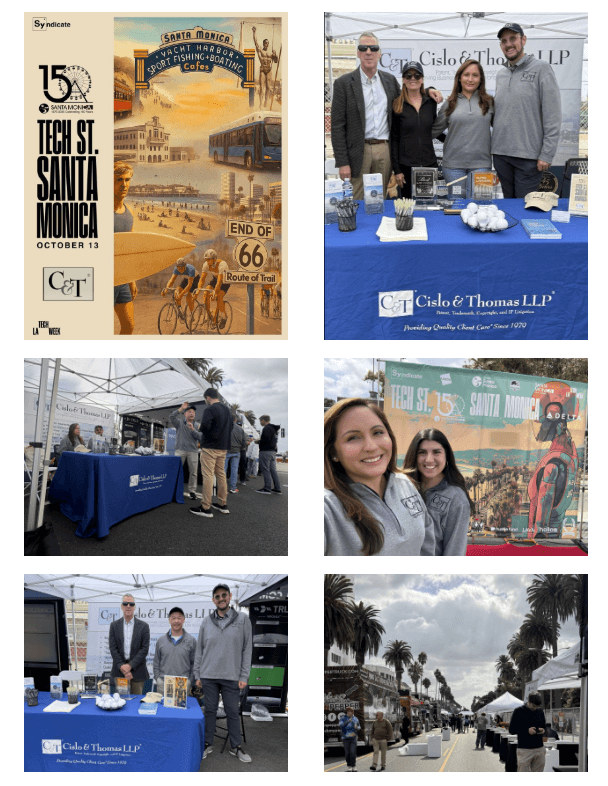Trademark Scam Alert: Be Aware of Fraudulent Communications
Takeaway: Watch out! Trademark owners should beware of scammers posing as the USPTO, as the USPTO will never contact clients directly when represented by an attorney. Always verify suspicious messages through your law firm before responding.

Trademark owners should remain vigilant against scammers impersonating the United States Patent and Trademark Office (USPTO). These fraudsters often call, email, or send official-looking letters demanding immediate payment for renewals, registration fees, or other trademark-related services. It’s important to know that the USPTO never requests payment or personal information by phone, and all legitimate communications will come from email addresses ending in “@uspto.gov.”
Furthermore, when Cislo & Thomas LLP is listed as your attorney of record, the USPTO will not contact you directly. All official correspondence and notices are sent through our firm. If you receive any communication claiming to be from the USPTO or another trademark office and are unsure of its authenticity, do not respond or provide any information. Instead, forward it to our office, and we will verify whether it is legitimate. Staying alert can help protect your intellectual property rights and prevent potential fraud.
Smucker’s Sues Trader Joe’s Over Alleged Copycat “Crustless” PB&J Sandwiches
Takeaway: Smucker’s is suing Trader Joe’s for allegedly copying the trademarked design of its Uncrustables sandwiches, claiming the look-alike product could mislead consumers and harm its billion-dollar brand.

The J.M. Smucker Co., maker of Jif® and Uncrustables®, has filed a federal lawsuit against Trader Joe’s in the Northern District of Ohio, accusing the grocery chain of trademark infringement and deceptive trade practices. Smucker’s claims Trader Joe’s “Crustless Peanut Butter & Strawberry Jam Sandwiches” unlawfully copy the design of its Uncrustables®, including their round, crustless, crimped-edge shape and marketing imagery, to capitalize on the nearly $1 billion brand’s reputation. The lawsuit seeks damages, profits, and an injunction to stop Trader Joe’s from selling or marketing its product, as well as the destruction of all infringing materials. Trader Joe’s has not commented on the lawsuit.
Federal Circuit Upholds ITC Ruling Invalidating Brita’s Water Filter Patent
Takeaway: The Federal Circuit confirmed that Brita’s water filter patent is invalid for insufficient disclosure, reinforcing that patent claims must fully describe and enable all claimed aspects of an invention.

The Federal Circuit has upheld a U.S. International Trade Commission (ITC) ruling that Brita LP’s water filter patent is invalid for lacking adequate written description and enablement. The three-judge panel agreed that the patent, which claims a filtration system using materials such as activated carbon and a lead scavenger, failed to show that the inventors possessed or enabled the full range of claimed filter materials beyond carbon blocks. The court declined to address an additional indefiniteness finding, as the other issues were sufficient to invalidate the patent.
Brita, a subsidiary of The Clorox Co., had initially won before an ITC judge, alleging that Helen of Troy, Kaz USA, and LifeStraw infringed the patent, but the full ITC reversed that decision in 2023. The Federal Circuit’s affirmation means Brita cannot block imports of the accused products. Brita’s related district court suits remain stayed pending this outcome.
Amazon Sues Over Massive Trademark Fraud Scheme
Takeaway: Amazon’s lawsuit against a California attorney and several Chinese companies over a massive trademark fraud scheme serves as a cautionary reminder for online sellers to secure legitimate federal trademark registrations through a reputable firm like Cislo & Thomas LLP to protect their brands and prevent misuse on platforms like Amazon.

Amazon has filed a lawsuit in Seattle federal court against California attorney Kathy Q. Hao and four Chinese companies, accusing them of running a massive scheme to fraudulently register tens of thousands of trademarks with the U.S. Patent and Trademark Office (USPTO). The alleged operation used these fake registrations to gain access to Amazon’s Brand Registry and submit false infringement claims, resulting in legitimate sellers being unfairly targeted and temporarily losing listings. Between 2019 and 2023, the defendants allegedly obtained over 56,000 fraudulent trademarks, with Hao listed as the attorney of record for more than 4,000 filings to help foreign entities bypass U.S. representation requirements.
The USPTO has already invalidated more than 52,000 of these applications and sanctioned several of the companies for forging signatures and unauthorized legal practice. Amazon is seeking damages, cancellation of fraudulent marks, and a permanent ban on the defendants’ participation in its Brand Registry program.
USPTO Launches AI-Powered “ASAP!” Pilot to Enhance Patent Examination Quality and Efficiency
Takeaway: The USPTO’s new ASAP! pilot marks a major step toward using AI to enhance patent examination quality and help applicants strengthen their filings from the start.

The U.S. Patent and Trademark Office (USPTO) has launched the Artificial Intelligence Search Automated Pilot (ASAP!) Program to test the use of AI in conducting pre-examination prior art searches. The program will provide applicants with an AI-Assisted Search Results Notice (ASRN), a “top ten list” of potential prior art references, allowing them to address issues early through amendments or other actions before formal examination.
By leveraging AI tools that analyze patent classifications, specifications, and claims, the USPTO aims to improve patent quality, speed, and efficiency. Data from the pilot will help determine whether the approach can be scaled and expanded to future initiatives.
Independent Songwriters Sue Udio AI for Illegally Using Copyrighted Music to Train Its AI Models
Takeaway: Independent songwriters are joining the growing wave of legal challenges against AI music companies, arguing that unlicensed training on copyrighted works threatens both artists’ livelihoods and the integrity of human creativity.

A group of independent songwriters has filed a class action lawsuit against Udio AI, alleging that the company trained its music-generating artificial intelligence models using copyrighted songs and lyrics scraped from the internet without permission or payment. The plaintiffs accuse Udio of direct and vicarious copyright infringement, removing copyright management information, and violating Illinois’ Biometric Information Privacy Act by collecting artists’ voiceprints.
According to the complaint, Udio “stream-ripped” recordings from YouTube and used lyric databases such as Genius and AZLyrics to train its AI, stripping metadata before processing the files. The songwriters argue that this large-scale copying is not protected by fair use, but rather constitutes the creation of a “profit-making music factory” that harms independent artists by flooding the market with AI-generated music.
This lawsuit distinguishes itself from earlier ones brought by major record labels against AI firms like Anthropic and Suno, emphasizing the impact on independent creators, who lack the financial resources of large publishers.
Supreme Court Lets Stand Ruling That Real Estate Agents’ Use of Floor Plans Is Fair Use
Takeaway: The Supreme Court’s refusal to hear the case leaves intact a ruling that real estate agents’ use of copyrighted floor plans for marketing homes is fair use, highlighting that functional, informational uses may outweigh creators’ control over their designs./em>

The U.S. Supreme Court declined to review an Eighth Circuit decision holding that real estate agents’ use of copyrighted home floor plans in marketing materials qualifies as fair use. Home designer Charles James and his company, Designworks Homes, argued that the ruling improperly permits agents to reproduce and post their designs online, even long after the homes were sold, harming both privacy and the market value of their architectural works.
The Eighth Circuit had found that the agents’ use of the plans served an “informational purpose,” helping potential buyers understand home layouts, which differed from the original creative purpose of constructing the homes. By denying review, the Supreme Court effectively affirmed that such use of floor plans in real estate advertising is lawful under the fair use doctrine.
Cislo & Thomas LLP Spotlight
Cislo & Thomas LLP Exhibits at LA TechWeek
The Cislo & Thomas LLP team exhibited this month at the 150th Anniversary of LA TechWeek here in Santa Monica, CA! It was a great opportunity to meet local entrepreneurs, eager to assist them in protecting their intellectual property.




